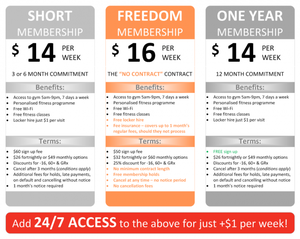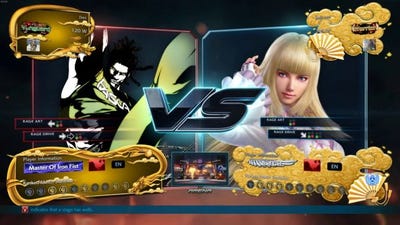Trending
Opinion: How will Project 2025 impact game developers?
The Heritage Foundation's manifesto for the possible next administration could do great harm to many, including large portions of the game development community.

Featured Blog | This community-written post highlights the best of what the game industry has to offer. Read more like it on the Game Developer Blogs or learn how to Submit Your Own Blog Post
Inspired by the twitter account @goodFGideas, I decided to write about some ideas for fighting games of my own. They may have posted some already, but I'm trying to take a deeper dive on some of mine.

 Fighting games appear to be at a unique crossroad, being pulled in various directions, between their grassroots origins, esports, popular IPs, and more.
Fighting games appear to be at a unique crossroad, being pulled in various directions, between their grassroots origins, esports, popular IPs, and more.
I think one of the most important things a genre can do in an attempt to grow is innovate. Even small tweaks -- hopefully in the right direction but not always -- can help direct and guide games in the genre to succeed and exceed predecessors.
So, inspired by @goodFGideas on Twitter, here are some ideas -- some could be interesting, others purposefully awful.
Also, apology in advance if some of these have already been done; either stated by @goodFGideas already or in an existing game.
There isn't a lot of variation when it comes to fighting games' business models. Usually the game is sold at one price; extra characters are then released several months after launch with some cosmetic DLC sprinkled throughout. There's also special or deluxe editions that already include the aforementioned character DLC released at launch. The other variation is free to play, where players get one or two characters to play -- that sometimes change on a weekly or monthly basis -- and buy the characters they want.
 Lately, it seems the post-launch character releases sometimes make games feel incomplete, irritating some players such as the case with BlazBlue Cross Tag Battle's DLC character packs. I sort of understand the logic behind the developer's choice. If you launch the game at the full $69.99 price, it may appear too high and scare some more fiscally responsible players away. This can also make supporting the game post launch with server support, balance updates, and patches more difficult. Doing DLC character packs allow some players to buy at the lower price, and if they decide they don't like the game, move on. Some will enjoy the game and continue to support it by buying the DLC; others will wait until the game and/or DLC is cheaper and buy it all at once.
Lately, it seems the post-launch character releases sometimes make games feel incomplete, irritating some players such as the case with BlazBlue Cross Tag Battle's DLC character packs. I sort of understand the logic behind the developer's choice. If you launch the game at the full $69.99 price, it may appear too high and scare some more fiscally responsible players away. This can also make supporting the game post launch with server support, balance updates, and patches more difficult. Doing DLC character packs allow some players to buy at the lower price, and if they decide they don't like the game, move on. Some will enjoy the game and continue to support it by buying the DLC; others will wait until the game and/or DLC is cheaper and buy it all at once.
Anyway, here are some business models future fighting games could try (or not):
I think Dead or Alive 5 already did this to a degree; allowing players to buy the story mode for an additional cost in the Final Round edition of the game, but why stop at story mode? Are you a casual who only wants to play story mode and arcade mode while you wait for a 100+ hour rpg to come out?  Then just buy Story Mode and Arcade mode, just $5 each! Are you a pro that doesn't care about narrative at all and just want to grind, lab, and play online? Then just get those! Similar to ordering a'la carte at a restaurant, you buy just the modes you want instead of a large meal with a side you'll probably forget at the table anyway despite getting a to go bag.
Then just buy Story Mode and Arcade mode, just $5 each! Are you a pro that doesn't care about narrative at all and just want to grind, lab, and play online? Then just get those! Similar to ordering a'la carte at a restaurant, you buy just the modes you want instead of a large meal with a side you'll probably forget at the table anyway despite getting a to go bag.
Regardless, this idea focuses on the compartmentalization of fighting games. Devs release the game at a relatively low price and see what modes are selling, need expansion, etc. Is nobody playing the single-player content? Then don't make more of it! A similar logic could be applied to cosmetic character DLC. Why make more costumes for character X if they are the least used character? The biggest risk is the game may appear unfinished, so upon release, a good number of these modes would need to be playable. Not, "Oh, 6 months from now, you can buy Story Mode." It should probably be a day one release that'll be expanded upon if successful.
For professional players, training mode is probably one of the most important modes in a fighter outside of versus and online play. And training modes have definitely evolved from earlier fighting games. You can record inputs to be played back or program an AI to react in a variety of ways. Though most training mode features were probably used by the developers to help debug key game features, there is still a considerable amount of UI work involved in getting these features usable to players.
Now, athletes train in gyms and on fields every day. The use of that equipment and those facilities isn't free, so why should training mode?! So, similar to Tekken Revolution's quarter system, why not use a similar system for Training Mode? If a game could make even $0.25 for every hour players are in training mode, can you imagine the revenue?! Heck, even just having ads pop-up could probably create decent revenue steam.
Now, will  players be annoyed by this? Yes. Don't do this. This is a horrible idea that I hope a company, no matter how hungry for profit, never does. Though I liked Tekken Revolution's quarter system to a degree -- free to play with quarters you kept by winning or gained back every hour -- doing this for training mode would probably cause lasting damage to any IP that tries it, except Street Fighter or Tekken; these two brands could maybe survive the backlash from hourly training mode fees.
players be annoyed by this? Yes. Don't do this. This is a horrible idea that I hope a company, no matter how hungry for profit, never does. Though I liked Tekken Revolution's quarter system to a degree -- free to play with quarters you kept by winning or gained back every hour -- doing this for training mode would probably cause lasting damage to any IP that tries it, except Street Fighter or Tekken; these two brands could maybe survive the backlash from hourly training mode fees.
 Player cards are pretty common in fighters. They show your gamertag, wins, losses, achievement-based banners, and more. My idea: Let players modify them more freely. If you don't wanna show how many losses you have, don't. Want to keep your number of wins a secret?! Remove it. Want multiple labels?! Go right ahead! Obviously, there'd be a limit. I imagine you'd have to fit items on the card similar to Resident Evil 4's inventory system.
Player cards are pretty common in fighters. They show your gamertag, wins, losses, achievement-based banners, and more. My idea: Let players modify them more freely. If you don't wanna show how many losses you have, don't. Want to keep your number of wins a secret?! Remove it. Want multiple labels?! Go right ahead! Obviously, there'd be a limit. I imagine you'd have to fit items on the card similar to Resident Evil 4's inventory system.
So the business model portion? Well, most banners and labels are earned through playing the game -- beat arcade mode with this character on hard, win 100 ranked matches, etc. Why not just let people buy these? They don't need to be expensive. If you like a label, just buy it. "But they didn't EARN it," you may decry. Who cares? (Obviously the person asking, but I digress.) A player earning a banner by doing something like beating arcade mode on Expert is good for them, but getting a dollar because the player didn't want to do is good for the developer (but could also speak to a poorly designed arcade mode or AI.)
Also it could create an interesting headgame during online matches. "Wait, they have the banner for doing all of that character's challenge combos?! They must be really good with them!" Are they, or did they buy that label? Well, you'll quickly learn once they drop a combo or two, but you were a little nervous, right? No? Fine.
Furthermore, wanna clear the number of losses you have? You can pay to have your criminal record expunged -- or at least a Google search tells me that -- why not you loss record? Or even your win record!
You may ask, couldn't this create an atmosphere of distrust? Well, I mean, so does rage quitting, a common practice players do to preserve win streaks, even despite punishments companies implement. And I'm pretty sure there are people who can easily figure out to mod their records somehow.
This idea is probably also very bad. I am curious to how many players actually even care about their player card or how many would pay to expunge their losses or to get a special, difficult-to-earn-badge. Does it cheapen said labels because some players didn't really earn it? Yes, but at the same time, when you earn one for real, knowing you earned it and saved money in doing so, that's a good feeling too. Overall, I think that's what the idea is referring to; more concepts that you can either earn through play or just buy. I believe Injustice 2 allowed this with Brainiac. You could either buy him immediately -- useful to tournament organizers for sure -- or save a few bucks -- at the cost of a few hours -- and earn him by completing Story Mode.
Single player content is a surprisingly contentious topic in fighting game. To the main design of a fighting game, single player content isn't really important. If the actual gameplay of a fighter is boring or uninspired, having good story, arcade, or campaigns modes really aren't going to save it.
SPC seems to really excel as expanding the brand of the game and its lore, letting players know why should they invest in this world or these characters. Also, it can be the vehicle to crossover into merchandising, expanding the brand into other media -- comics, movies, shows, etc. (Or do the opposite, get more people interested in an existing brand.)
I'll admit, I really liked Mortal Kombat 9's story mode. It did a great job at exploring the rather complex (or convoluted) lore of the Mortal Kombat series and allowed players to try multiple characters, acting almost like mini introductions to the cast -- or kast? Sorry.
Though I feel after that game's success EVERY AAA fighting game has copied that formula -- do a fight, watch a cutscene, do a fight, repeat. I can't imagine how expensive these modes are. With all of their animation, narrative design and writing, voice acting, and various one-off systems needed to implement just to -- and I could be wrong about this -- have a majority of players ignore or ridicule it.
.jpg/?width=480&auto=webp&quality=80&disable=upscale) One issue is often these fights usually aren't anything special or unique from the basic play experience. Maybe you'll face someone like Peter the Cop from Street Fighter V or an unplayable boss, but they are just small snippets of unique play. Also, cutscenes seems to get longer and longer, highlighting an already problematic flow style. At least Guilty Gear Xrd just did away with the flow problem and made a movie with no fights.
One issue is often these fights usually aren't anything special or unique from the basic play experience. Maybe you'll face someone like Peter the Cop from Street Fighter V or an unplayable boss, but they are just small snippets of unique play. Also, cutscenes seems to get longer and longer, highlighting an already problematic flow style. At least Guilty Gear Xrd just did away with the flow problem and made a movie with no fights.
Anyway, the "idea" is just to try something new with this. Shorter cutscenes, more tutorialized or unique challenges, just something that'll separate it from NRS's current story mode implementations. Something that'll make players go "Hey, playing this story mode was a lot more beneficial to me than just watching it on YouTube."
"Tutorial" feels like a dirty word in game development. It feels like a lot of developers and designers -- myself included -- seem to dread creating them, especially if they are leaning towards being very text heavy or requiring a lot of unique features that are only for the tutorial. A lot of this stems from the feeling that players often ignore or rush through them, missing key points and then quitting out of frustration because they ignored said points. I think the best tutorials are once considered to be invisible; however, implementing these ideas in fighting games seems rather difficult since the progression can't be neatly laid out like in Half Life 2.
Tekken 7's Story Mode is an example of a single player content that tries to replace a tutorial -- though I think doesn't do a great job of it, particularly due to the limited character set, easy input mode, and other factors. Regardless, I think, if a developer isn't going to take the time to do an in-depth tutorial, some level of single player content to teach various aspects of the game is important. Challenges such as blocking a series of attacks or fighting opponents that only take damage from juggles I think can help a player learn, but also explore different aspects of the game without feeling like they are necessarily doing a tutorial.
I feel one thing that hasn't changed a ton over the course of fighting games has been online mode. You have ranked, casual, and lobbies to play with friends. Besides things like Factions in Mortal Kombat X, I'm unsure what innovation is really being brought to online play.
Now this idea probably already doable to a degree, but the problem it's trying to solve is that new players often jump right online and just get demolished by more experienced players. Those players pretty much have two options then: try to learn and improve or just leave and move on to a different game.
What if, instead of immediately jumping online, players could learn from a mentor of sorts. Apparently online training modes already exists, but this service would more or less allow more experience players -- probably determined by rank or experience -- to train and mentor newer players through private one on one online training.
This probably already exists through more experienced players Patreons -- donate X per month and I'll play with you for an hour a week or something -- but what is the game could facilitate this more? You can then rank which mentors were helpful or unhelpful, etc., and said mentors are rewarded.
.png/?width=203&auto=webp&quality=80&disable=upscale) Again, probably not a necessary idea as the community and players could facilitate this instead of the game; however, I think by putting it out there, it could help newer players realize that the fighters take time to learn and sometimes they just need help from some more experienced in the genre to succeed. Also, it could be a nice alternative to videos, which don't always work for individuals who learn more kinesthetically. I mean, most people don't learn martial arts through videos or books, they learn through classes with a skilled teacher, and I think fighting games taking a similar approach could be helpful in growing a lasting playerbase. This idea also fails if the player refuses to believe they need help of any kind as finding a learning from a mentor is usually an admittance that one needs help -- which shouldn't and isn't something to be ashamed of, yet it often is believed to be one.
Again, probably not a necessary idea as the community and players could facilitate this instead of the game; however, I think by putting it out there, it could help newer players realize that the fighters take time to learn and sometimes they just need help from some more experienced in the genre to succeed. Also, it could be a nice alternative to videos, which don't always work for individuals who learn more kinesthetically. I mean, most people don't learn martial arts through videos or books, they learn through classes with a skilled teacher, and I think fighting games taking a similar approach could be helpful in growing a lasting playerbase. This idea also fails if the player refuses to believe they need help of any kind as finding a learning from a mentor is usually an admittance that one needs help -- which shouldn't and isn't something to be ashamed of, yet it often is believed to be one.
 When online, sometimes you lose, you lose bad, and you want that over seasoned rematch. Most games do keep track of your last couple of opponents. So you could probably find that gamertag, invite to a match, and have your revenge match, but what if the game did more?
When online, sometimes you lose, you lose bad, and you want that over seasoned rematch. Most games do keep track of your last couple of opponents. So you could probably find that gamertag, invite to a match, and have your revenge match, but what if the game did more?
Inspired by the Nemesis System of Shadow of Mordor / War, what if fighters had a similar system? Every time you lose a match, you have the option to make that opponent a nemesis. Then, in the future, you can rechallenge that player. It probably wouldn't go toward your in-game ranking, but you could have built-in rewards to create an incentive to challenge nemeses but also for said nemeses to accept rematches. Though not a huge or new concept, it's a small tweak that could make online play more interesting and motivate players in a different way, giving them a reason to come back in the future.
 Some fighters have special status effects such as turning a character invisible or poisoning an opponent. I think it would be interesting that, when playing online, the effects were visually asymmetrical. If I turn invisible, I can still see my character locally -- probably with some fancy effect so I can tell the effect is still active -- but on the opponent's side, my character is completely invisible. In the case of poisoning, the entire screen gets a slight purple hue, not only to indicate that the negative effect is active but to give an additional layer of difficult by affect the game's visual. This is a short idea, but I feel something small like this could make online play more interesting.
Some fighters have special status effects such as turning a character invisible or poisoning an opponent. I think it would be interesting that, when playing online, the effects were visually asymmetrical. If I turn invisible, I can still see my character locally -- probably with some fancy effect so I can tell the effect is still active -- but on the opponent's side, my character is completely invisible. In the case of poisoning, the entire screen gets a slight purple hue, not only to indicate that the negative effect is active but to give an additional layer of difficult by affect the game's visual. This is a short idea, but I feel something small like this could make online play more interesting.
I feel the biggest issue with fighting game online modes today is that they don't really have strong incentives to keep playing or can feel like a grind. They don't give a great sense of progress nor do they really offer a reason to keep coming back.
You get the trophies, now what? They are usually one-and-done. You get top rank -- and if you do, you're probably already a pro player and it doesn't matter because you're preparing for some tournament -- but in that case, tournaments already provide the why.
But what drives average or below average players to keep coming back? They may enjoy playing the game itself but just aren't that great, losing online becomes tedious, and they may not have the time or resources dedicated to improving quickly. Should they quit playing? Developers never really want the answer to that to be "yes."
 So developers need to contemplate, besides the frustration brought on from losing, what are they getting out of it? A lose streak and loss record already is a harsh punishment to some -- something else I'll applaud Tekken Revolution for doing away with. If said player does feel like they are making some progress on their play and eventually will break through and end the losing streak, nothing really needs to be done; however, there will always be players that when faced with even minor frustration, feelings of regression with no accomplishment, will probably quit and move onto something else. This is a reality some games need to face; developers can't please everyone, but the more they can prevent players leaving and quitting, the better.
So developers need to contemplate, besides the frustration brought on from losing, what are they getting out of it? A lose streak and loss record already is a harsh punishment to some -- something else I'll applaud Tekken Revolution for doing away with. If said player does feel like they are making some progress on their play and eventually will break through and end the losing streak, nothing really needs to be done; however, there will always be players that when faced with even minor frustration, feelings of regression with no accomplishment, will probably quit and move onto something else. This is a reality some games need to face; developers can't please everyone, but the more they can prevent players leaving and quitting, the better.
Overall, I guess the idea is give players a reason to play online, regardless of the outcome. Sure, the subjective nature of the game being fun is there -- if you can make players enjoy losing as much as winning, you've made great progress, but I feel like even a minor reward for losing, can help.
 Some games have made efforts towards this, awarding small amounts of EXP or in game currency just for playing. Some games offer daily challenges: throw an opponent five times during a ranked match, win 3 matches with X character -- though personally I don't like these because they force you to change your play style to complete said challenges, ultimately serving as a distraction. And developers can't do what some mobile or single player games do -- allow players to buy in-game currency so they can overcome the next challenge more easily. Maybe this isn't really a problem, but just a reality of competitive games. You have your core players that will utilize online play the most, and more casual players who will consume single player content and move on as they make little to no progress online.
Some games have made efforts towards this, awarding small amounts of EXP or in game currency just for playing. Some games offer daily challenges: throw an opponent five times during a ranked match, win 3 matches with X character -- though personally I don't like these because they force you to change your play style to complete said challenges, ultimately serving as a distraction. And developers can't do what some mobile or single player games do -- allow players to buy in-game currency so they can overcome the next challenge more easily. Maybe this isn't really a problem, but just a reality of competitive games. You have your core players that will utilize online play the most, and more casual players who will consume single player content and move on as they make little to no progress online.
I guess this isn't so much an idea -- and it's not really unique to fighting games. This is more or less just expressing the opinion that online play currently can feel like a pointless grind, that some players need a better reason to come back to online mode, a "Why?" I think the game design lens of visible progress has some good questions for this; I feel showing players their progress could help answer this too, but of course, the counter question, do players even care about their progress if said progress isn't just win accumulation?
In conclusion, here is a list of ideas that I could have probably tweeted instead of writing this:
Allow players to buy what modes they want to play
Charge a nominal fee per hour of Training Mode usage
Allow players to buy any badge for their player card as well as the ability to expunge their loss record
Stop copying NetherRealm Studios Story Modes
Make more single player content fights unique and/or act as invisible tutorials
Create an online mentorship program to allow more skilled players train less skilled ones
A nemesis system that allows players to quickly have revenge matches and rewards both players for victory and participation
Asymmetrical networking effects between players.
Give players a reason to play online through visible progress and/or minimal reward/punishment.
 Oh and one more I didn't feel like writing about at length -- use machine learning to prevent infinites and improve balance. I didn't write at length on this, because I feel like machine learning is a buzzword I don't know a ton about. Regardless, I am curious if someone could create an AI that could take a game's data, analyze it, and point out a lot of the initial flaws. It probably wouldn't find all of them, and worse, it could result in a sterile experience so it could end up being a horrible, expensive idea.
Oh and one more I didn't feel like writing about at length -- use machine learning to prevent infinites and improve balance. I didn't write at length on this, because I feel like machine learning is a buzzword I don't know a ton about. Regardless, I am curious if someone could create an AI that could take a game's data, analyze it, and point out a lot of the initial flaws. It probably wouldn't find all of them, and worse, it could result in a sterile experience so it could end up being a horrible, expensive idea.
Again, some ideas are maybe okay and could extend to other genres; some ideas are awful, and I would secretly love to watch attempts at subduing the PR nightmare manifested by someone trying them.
Overall, I think the genre is in an interesting period. I think things are exciting and great, but I also feel they could be improved and evolve, and I hope we continue to see developers attempt to evolve the genre through even the slightest changes in the future.
Read more about:
Featured BlogsYou May Also Like